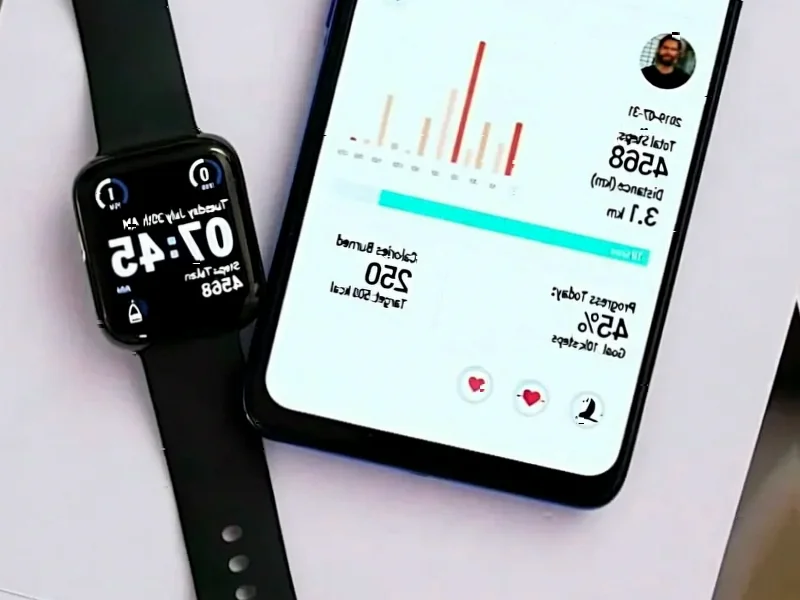According to Digital Trends, Fitbit is rolling out a new AI-driven personal coach for Premium subscribers in the United States that transforms the app into a conversational fitness companion. The feature integrates Google’s Gemini AI directly into the Fitbit app, enabling users to interact with an assistant that’s aware of their fitness data and provides personalized advice, goal-setting support, and tailored suggestions for activity, sleep, and overall wellness. Alongside the AI coach, Premium users receive a major app redesign with a new Today tab displaying key health metrics and instant feedback in one place. The feature is currently in public preview, with Google actively collecting user feedback before expanding to iOS users and broader international markets in the near future. This development marks a significant evolution in how wearable technology companies are approaching user engagement.
The End of Passive Tracking Era
Fitbit’s move represents a fundamental strategic shift in the wearable market from passive data collection to active guidance. For years, the industry has been stuck in what I call the “data deluge problem” – users receive mountains of information about steps, heart rate, and sleep patterns but lack meaningful interpretation. According to the company’s announcement, this AI coach transforms raw data into actionable advice, addressing the core limitation that has plagued fitness trackers since their inception. This isn’t just an incremental feature update; it’s a complete reimagining of the value proposition that could force competitors to follow suit or risk obsolescence.
Google’s Ecosystem Advantage
The Gemini AI integration gives Fitbit a competitive edge that Apple, Samsung, and other players will struggle to match quickly. While Apple has Siri and health data integration, Google’s AI capabilities specifically around natural language processing and contextual understanding are arguably more advanced for this type of application. The ability to have nuanced conversations about fitness goals – like “help me run without getting out of breath” – requires sophisticated AI that understands both the user’s intent and their historical data patterns. This creates a significant barrier to entry for competitors who lack either the AI infrastructure or the depth of health data that Google now possesses through Fitbit’s years of user tracking.
Subscription Model Implications
This AI feature exclusively for Premium subscribers signals an acceleration of the subscription wars in the wearable space. At $9.99 per month or $79.99 annually, Fitbit Premium now offers a clearer value differentiation from the free tier. The industry has been moving toward subscription models as hardware margins compress, but until now, most premium features have been relatively incremental. A conversational AI coach represents the kind of “must-have” feature that could actually drive conversion rates and reduce churn. If successful, expect Apple, Garmin, and others to rapidly develop similar AI-powered coaching features behind their own paywalls, potentially creating a new standard for what consumers expect from premium health tracking services.
The Data Privacy Tightrope
The AI coach’s deep integration with personal health data raises significant privacy considerations that both regulators and consumers will scrutinize. Google now has access to not just what you do, but why you do it and how you feel about it. The conversational nature means users might share sensitive health concerns, fitness struggles, or personal goals that go far beyond step counts. While this creates better personalization, it also represents a substantial expansion of the data footprint. In an era of increasing health data regulation globally, Google will need to navigate these waters carefully, especially given their existing scrutiny around data practices and market dominance.
Consolidation Pressure on Smaller Players
This development increases pressure on smaller wearable companies that lack the AI resources to compete. Companies like Whoop, Oura, and smaller fitness tracker brands now face an innovation gap they may struggle to bridge. Building conversational AI that understands health context requires massive investment in both technology and data – resources that only tech giants like Google, Apple, and potentially Amazon possess. We’re likely to see accelerated consolidation in the wearable space as smaller players either partner with AI providers or get acquired. The barrier to compete just moved from hardware design and basic tracking algorithms to sophisticated AI personalization at scale.
Redefining Wearable Value Propositions
Looking forward, this move could fundamentally reshape consumer expectations and market positioning across the entire wearable industry. If Fitbit’s AI coach proves successful, we’ll see a rapid shift from devices being primarily about tracking to being about coaching and prevention. The next logical step would be predictive health interventions – where the AI doesn’t just respond to questions but proactively suggests behavior changes based on patterns it detects. This could eventually position wearables not just as fitness accessories but as legitimate health management tools, potentially opening up opportunities in healthcare partnerships, insurance integrations, and clinical applications that have remained largely untapped until now.




